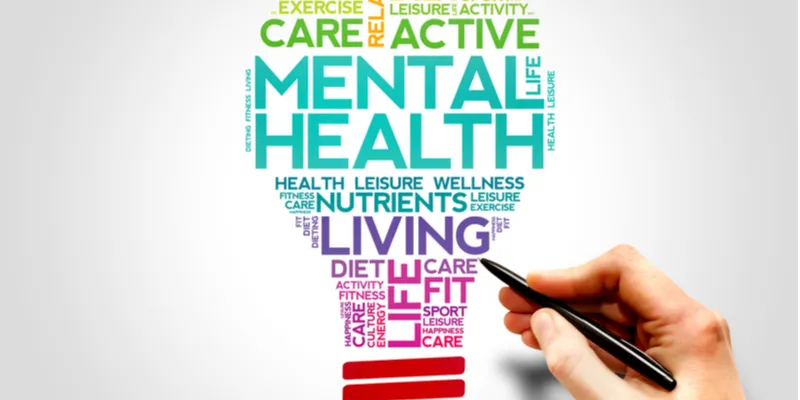Happiness Project: On World Mental Health Day, here’s how to stay positive and de-stress
In stressful times like the current pandemic, mental health issues are on a never-before high. Radhika Bapat, psychotherapist, talks about how to stay strong and positive on World Mental Health Day which falls on October 10
Fifty-seven years ago, way before cell phones, chats and social media, Harvey Ross Ball an American commercial artist was paid a fee of 45 USD (approximately ₹215 at the time) to design a graphic image in order to improve employee morale at the State Mutual Life Assurance Company.

The smiley face is a symbol of happiness
Eight years later, a French entrepreneurial journalist by the name of Franklin Loufrani designed and trademarked a similar symbol - it was a perfect circle, bright sunny yellow in colour with small oval eyes, now known as the “Smiley face,” and presently, a 500-million-dollar business.
Be positive not D-positive

Happiness begins with an attitude of optimism and positivity
Some time ago, cardiologists started noticing that people with a personality type that they called “D” personality or 'distressed personality' tended to get angry more often, and were more negative than others. They did not enjoy good interpersonal social relationships.
This attitude put 'D' personalities at greater risk for coronary heart disease. At around the same time, psychologists started focussing more on disease prevention rather than treatment and called it “positive prevention” or “positive therapy.”
Some people are more “stress-hardy” than others. They fall sick less and live longer despite being in strenuous situations.
It is important to cultivate an attitude of “hopeful optimism”, where you view life as a challenge and a chance for opportunity and growth rather than a nerve-wracking, traumatic journey.
Here are a few ways to get there….
Strengthen the mind and body

Proper diet and fitness can keep you in optimum mental health
In order to strengthen the mind, it is important to understand what triggers stress in your body. For some it is work, for others, it is family, and for yet others, it is the inability to balance the two. The recurring theme, however, is the thought that we don’t “have it” in us to undertake the enormous tasks that face us every day.
Positive psychology focuses on rational thinking and healthy coping to make you more resilient, feel more flow and stay more balanced. It also helps you to give your life more meaning.
Besides the many techniques available that can strengthen your mind, there are other ways to feel good again. Regular cardiac exercise, a proper diet, yoga, Tai-Chi, deep breathing, progressive muscle relaxation, meditation, visualisation, relaxation and whole-body massages are known to reduce muscle tension.
The more relaxed your body is, you will find fewer negative thoughts in your mind.
Body awareness is the key
How many of us understand how our bodies react to various stressors? Why do we feel “butterflies in our tummy” just before an exam? Why are we unable to sleep at night when our mind is filled with “future doomsday” thoughts?
Psychologists use a technique called “Body Scanning” to help you start and maintain a relationship with your own body. They start by asking you to close your eyes and slowly move from your toes upwards. The idea is to help you stay aware of the tension that you have created in your body and how it can hurt you. This technique allows you to “let go” and change such patterns of negative thought.
Learn to breathe

Learn to breathe properly in order to stay healthy
Poor breathing is the root cause of many ailments. Proper breathing is a habit that you have to inculcate and learn from trained masters.
It is equally important to learn the theory behind the right breathing techniques. In India, we are lucky to have the BKS Iyengar Yoga Institute at Pune within our reach and we can also study the science of Pranayama.
In today’s digital age, information to better mental health is both accessible and affordable.
A time to de-stress

Positivity and optimism are important for mental health
Tips on staying calm and stress-free
- Rather than avoiding people, seek out friends for conversation. If this is not possible, look for online support groups to help you.
- Although its oft-repeated, physical exercise benefits mental health greatly.
- Unstructured leisure where you set time aside every day to “repose” and “relax” contributes not just the quality of life, but also to health.
If you cannot get an objective view from people who know you, approach a skilled psychologist to give you a structured outlook and blueprint of your situation.
- Take a staycation, a sabbatical or even just a day off. Time-off although it seems counterintuitive, actually allows the body some rest. Recuperation makes you more (not less) productive.
Laughter is the best medicine. Make sure to indulge in positive humorous banter and allow yourself to watch light-hearted comedy.
- A balanced diet helps improve your mental health. An unhealthy obsession with weight or overindulgence in foods and alcohol is injurious to your mental health.
(Images credit: Shutterstock)
Edited by Asha Chowdary
(Disclaimer: The views and opinions expressed in this article are those of the author and do not necessarily reflect the views of YourStory.)








